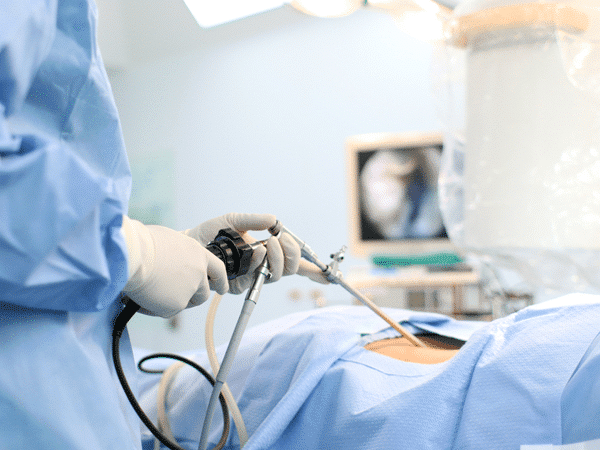Laparoscopic Surgery for Kidney Cancer
Kidney cancer can be treated with minimally invasive techniques such as laparoscopic partial nephrectomy and laparoscopic radical nephrectomy. During these surgical procedures, doctors may either remove the tumour and a small portion of healthy tissue, or the whole kidney. Following laparoscopic partial nephrectomy, patients can resume their normal activities in less than half the time it takes to completely recover from an open surgery.

Laparoscopic Surgery for Bladder Cancer: Patients suffering from advanced bladder cancer may need to have either a part of or their entire bladder removed through procedures like Partial or Radical cystectomy. The former is performed when cancer has spread to just a portion of the bladder wall, but the latter is needed, when the cancer has invaded the whole bladder. In this process, the entire bladder as well as nearby lymph nodes and organs are removed. A new structure known as a ‘neobladder’ that enables patients to store urine inside the body or in an external pouch is created. Cystectomies are performed using either a traditional or robotic laparoscope as the recovery is swift and smooth.
Laparoscopic Surgery for Prostate Cancer: Radical prostate surgery is performed using a laparoscopic surgical robotic unit called the da Vinci system. This innovative surgical system provides surgeons easy access to the prostate through a few minor incisions. Small surgical instruments also enable tissue manipulation with great precision, and prostate gland removal, while reducing harm to surrounding tissues. The da Vinci system also provides surgeons with considerably enhanced magnification of the surgical field, making it easier to view and avoid critical nerves that pass through the prostate. This, in turn, tremendously reduces the complications associated with urinary incompetence and impotence.









